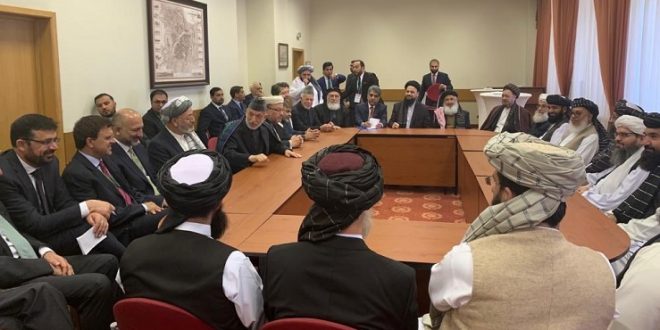AT News
KABUL: The Human Rights Watchdog said that victims of war should be consulted regarding peace talks with the Taliban, saying that without observation of war leftover victim’s wishes and demands, the facilitation of a sustainable and justifiable peace is impossible.
Zabiullah Farhang, an official of the Afghanistan Independent Human Rights Commission said, “The executive mechanism for peace in every country is based on war victims’ demands.”
According to him, the commission has recorded around 86,823 death and wounded civilians during last ten years (2009-2019) of war in Afghanistan.
Spokesperson for the ministry of state in peace affairs, Najia Anwari said that the ministry has been trying to include the representative of victims of war in the peace process.
“People on behalf of the war victims will be included in the decisions related to peace,” she added.
Throughout years of war, many Afghan families have lost their beloved once; however most of these victims still calling for the end this endless war in and wish a sustainable peace in their country.
“End of war, facilitation of peace that can provide the rights of victims of war is the main demand of them,” Farhang said.
After two decades of war, the United States engaged in direct talks with the Taliban to put an end to its longest war. The US top negotiator, Zalmay Khalilzad was succeeded to make the Taliban sign a peace deal with Washington after a longtime marathons peace negotiations held between American diplomats and Taliban representatives in the Gulf state of Qatar.
The US and Taliban signed a peace deal on February 29th that was supposed to be followed by direct-Afghan-talks, however the talks between Afghan sides have not been held so far, as the government and Taliban are seemed reluctant towards peace process. Based on US-Taliban peace deal, the US would cut down the number of its roughly 13,000 troops to 8,600.
On the other side, the Afghan government should be releasing 5,000 Taliban prisoners in exchange for 1,000 prisoners held in Taliban’s custody.
Earlier the AIHRC had expressed concerns over the release of 5,000 Taliban prisoners, saying that the government had not shared the list of these prisoners with the commission.
The Afghan government has thus far freed hundreds of Taliban inmates, although the technical negotiations over prisoners swap between the government and Taliban were believed to be hitting walls after the militants insisted on release of their 15 notorious commanders, who are behind massive attacks against Afghan people.
The Taliban had earlier released 60 prisoners, whose most of them were said to be civilians.
 Afghanistan Times
Afghanistan Times




